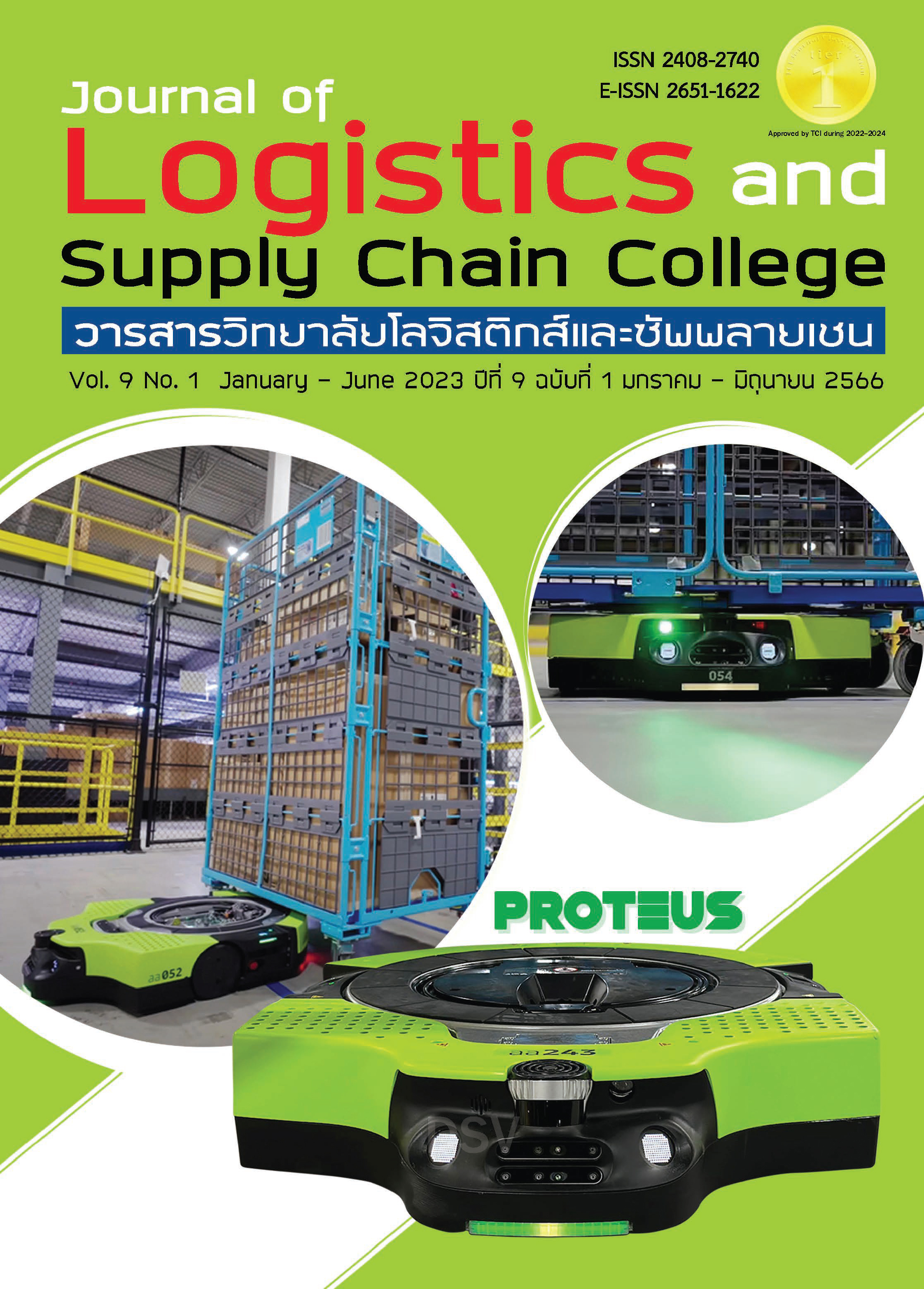อิทธิพลของการมีส่วนร่วมของชุมชนต่อศักยภาพทางการท่องเที่ยว: กรณีศึกษาชุมชนท่าสะบ้า อำเภอวังวิเศษ จังหวัดตรัง
คำสำคัญ:
การมีส่วนร่วมของชุมชน , ศักยภาพทางการท่องเที่ยว , ชุมชนท่าสะบ้าบทคัดย่อ
งานวิจัยฉบับนี้มีวัตถุประสงค์เพื่อ 1) ศึกษาระดับการมีส่วนร่วมของประชาชนในชุมชน 2) ศึกษาศักยภาพทางการท่องเที่ยวของชุมชนท่าสะบ้า และ 3) ตรวจสอบอิทธิพลของการมีส่วนร่วมของชุมชนที่มีต่อศักยภาพทางการท่องเที่ยวของชุมชนท่าสะบ้า อำเภอวังวิเศษ จังหวัดตรัง เก็บรวบรวมข้อมูลจากกลุ่มตัวอย่างจากประชาชนที่อาศัยอยู่ในพื้นที่ชุมชนท่าสะบ้าจำนวน 400 คน ด้วยแบบสอบถาม วิเคราะห์ข้อมูลเชิงปริมาณด้วยการวิเคราะห์สถิติเชิงพรรณนา ได้แก่ ความถี่ ร้อยละ ค่าเฉลี่ย และส่วนเบี่ยงเบนมาตรฐาน และสถิติเชิงอนุมานด้วยการวิเคราะห์สมการถดถอยพหุคูณแบบเป็นขั้นตอน ผลการวิจัยบ่งชี้ว่าประชาชนในชุมชนท่าสะบ้ามีส่วนร่วมกับชุมชนในภาพรวมอยู่ในระดับปานกลาง เช่นเดียวกับศักยภาพทางการท่องเที่ยวของชุมชนที่ภาพรวมอยู่ในระดับกลาง ผลการวิจัยจากการวิเคราะห์สมการถดถอยพหุคูณพบว่า การมีส่วนร่วมของชุมชนมีอิทธิพลต่อศักยภาพทางการท่องเที่ยวของชุมชนอย่างมีนัยสำคัญทางสถิติ นอกจากนี้ ผลการวิจัยยังยืนยันปรากฏการณ์ตามทฤษฎีผู้มีส่วนได้เสียในบริบทของการท่องเที่ยว โดยในส่วนของข้อเสนอแนะ การมีส่วนร่วมของชุมชนเป็นปัจจัยสำคัญของการพัฒนาศักยภาพทางการท่องเที่ยวของชุมชนที่ผู้มีส่วนเกี่ยวข้องควรให้ความสำคัญ
เอกสารอ้างอิง
ที่ทำการปกครองอำเภอวังวิเศษ จังหวัดตรัง. (ม.ป.ป.). สภาพและข้อมูลพื้นฐาน. ค้นเมื่อ 14 มิถุนายน 2565, จาก: https://wangwiset.dopatrang.go.th/general1.php.
พิมพงา เพ็งนาเรนทร์ (2564). การมีส่วนร่วมของชุมชนเพื่อการพัฒนาศักยภาพการท่องเที่ยวเชิงนิเวศอย่างยั่งยืนของจังหวัดนครปฐม. วารสารสารสนเทศ, 19(2), 95-108.
มติชนออนไลน์. (2565). ‘พิพัฒน์’ วางนโยบายเดินหน้าท่องเที่ยวไทยปี’65 เติบโตทั่วถึง-สมดุลย์-ยั่งยืน ย้ำปั้นรายได้ 1.2 ลลบ. ค้นเมื่อ 22 มิถุนายน 2565, จาก: https://www.matichon.co.th/economy/news_3166366.
วิภาดา เถาธรรมพิทักษ์ และเทิดชาย ช่วยบำรุง. (2562). ศักยภาพของแหล่งท่องเที่ยวมรดกโลกทางวัฒนธรรมในประเทศไทย กรณีศึกษานครประวัติศาสตร์พระนครศรีอยุธยา. วารสารวิชาการนวัตกรรมสื่อสารสังคม, 7(1), 35-45.
เสาวคนธ์ เหลืองทองคำ. (2558). การมีส่วนร่วมของชุมชนในการพัฒนาการท่องเที่ยวแบบยั่งยืน: กรณีศึกษาอำเภอปราณบุรี จังหวัดประจวบคีรีขันธ์. วารสารวิชาการบัณฑิตวิทยาลัยสวนดุสิต, 11(1), 19-29.
อรทัย ก๊กผล. (2552). คู่คิด คู่มือการมีส่วนร่วมของประชาชน สำหรับนักบริหารท้องถิ่น. กรุงเทพฯ: จรัญสนิทวงศ์การพิมพ์.
Bassey, B. E. (2015). Transforming the Nigeria tourism industry through tourism entrepreneurial development. African Journal of Business Management, 9(15), 569-580.
Bricker, K., & Donohoe, H. (2015). Demystifying theories in tourism research. Wallingford, UK: CABI.
Carlson, K. D., & Herdman, A. O. (2012). Understanding the impact of convergent validity on research results. Organizational Research Methods, 15(1), 17-32.
Choibamroong, T. (2009). The role of local government organizations and sustainable tourism development based on the sufficiency economy concept. Publisher of the Cabinet and the Government Gazette. Bangkok: King Prajadhipok's Institute.
Cohen, J. M., & Uphoff, N. T. (1980). Participation's place in rural development: Seeking clarity through specificity. World development, 8(3), 213-235.
Freeman, R. E. (1999). Divergent stakeholder theory. Academy of management review, 24(2), 233-236.
Kebete, Y., & Wondirad, A. (2019). Visitor management and sustainable destination management nexus in Zegie Peninsula, Northern Ethiopia. Journal of Destination Marketing & Management, 13, 83-98.
Kennedy, M. O., Monica, V. V., Maria, A. S. N., & Carlos, A. R. G. (2013). Ecotourism in developing countries: a critical analysis of the promise, the reality and the future. Journal of Emerging Trends in Economics and Management Sciences, 4(5), 481-486.
Laparojkit, S., & Suttipun, M. (2021). The influence of customer trust and loyalty on repurchase intention of domestic tourism: A case study in Thailand during COVID-19 crisis. The Journal of Asian Finance, Economics and Business, 8(5), 961-969.
Liu, J., Qu, H., Huang, D., Chen, G., Yue, X., Zhao, X., & Liang, Z. (2014). The role of social capital in encouraging residents' pro-environmental behaviors in community-based ecotourism. Tourism Management, 41, 190-201.
Mitchell, J., & Coles, C. (2009). Enhancing private sector and community engagement in tourism services in Ethiopia. Project Report for the World Bank.
Pansiri, J. (2013). Collaboration and partnership in tourism: The experience of Botswana. Tourism Planning & Development, 10(1), 64-84.
Saufi, A., O'Brien, D., & Wilkins, H. (2014). Inhibitors to host community participation in sustainable tourism development in developing countries. Journal of sustainable tourism, 22(5), 801-820.
Taherdoost, H. (2016). Validity and reliability of the research instrument; how to test the validation of a questionnaire/survey in a research. International Journal of Academic Research in Management, 5(3), 28-36.
Tosun, C. (1999). Towards a typology of community participation in the tourism development process. Anatolia, 10(2), 113-134.
Wang, C. C., Cater, C., & Low, T. (2016). Political challenges in community-based ecotourism. Journal of sustainable tourism, 24(11), 1555-1568.
Wondirad, A. (2017). Who benefits from the ecotourism sector in Southern Ethiopia? International Journal of Tourism Sciences, 17(4), 276-297.
Wondirad, A., & Ewnetu, B. (2019). Community participation in tourism development as a tool to foster sustainable land and resource use practices in a national park milieu. Land use policy, 88, 104155.
Yamane, T. (1973). Statistics an Introductory Analysis. 3rd Edition, Harper and Row, New York.
Yan, L., Gao, B. W., & Zhang, M. (2017). A mathematical model for tourism potential assessment. Tourism Management, 63, 355-365.



